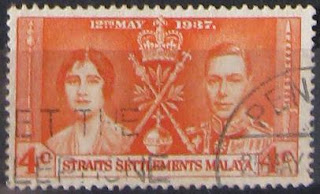With advancement of the postal system and increase in postal addresses, Singapore had changed the postal system over the years. The postal code system is critical for fast sorting of mails, which is why during festivities, the postal operator will often remind people to put the correct postal codes, e.g. a reminder in the form of postal cancellation "Use the Correct Postal Code".
Back in 1950, Singapore only used a 2 digit postal codes to denote the 28 postal districts. This remained until 1979, when a 4 digits postal code system was introduced. The postal districts remained, with the 2 digits of the postal districts forming the first part of the 4 digits system, and the other half (i.e. remaining 2 digits) denoted the new postal sectors. As a result of the postal districts system, many properties in Singapore continued to be characterised by their original postal districts, and some districts obviously fetched a higher price compared to others. An example to illustrate this change: a housing with a previous district code of 09 could have a postal code of 0928 after the changed, i.e. the housing is located within postal sector 28. Housing in district 9 can fetch a very good price!
Back in 1950, Singapore only used a 2 digit postal codes to denote the 28 postal districts. This remained until 1979, when a 4 digits postal code system was introduced. The postal districts remained, with the 2 digits of the postal districts forming the first part of the 4 digits system, and the other half (i.e. remaining 2 digits) denoted the new postal sectors. As a result of the postal districts system, many properties in Singapore continued to be characterised by their original postal districts, and some districts obviously fetched a higher price compared to others. An example to illustrate this change: a housing with a previous district code of 09 could have a postal code of 0928 after the changed, i.e. the housing is located within postal sector 28. Housing in district 9 can fetch a very good price!
In September 1995, the 4 digits system was deemed as inefficient to allow for faster sorting of mails and packets. Thus a 6 digits system was introduced. The postal district part was dropped, and the postal sector part remained to form the first half of the 6 digits system. Using the previous example, the new postal code could be 280112. A '0' was added to the postal sector in cases of public housing. In cases when the building is commercial or industrial, another number would replace the '0'. For example, Ngee Ann City in Singapore has a postal code of 238872, a '8' instead of a '0'.
In cases of public housing (i.e. HDB flats), the last 3 digits are typically the housing block number. So if you lived in blk 112, then number 112 would form the last 3 digits under the new postal system. The current system seems alright to cope with the new demand of postal letters sorting. Looking at the years difference between past changes (1950 - 1979 = 29 years & 1979 - 1995 = 16 years) , and it has been 13 years since the last change, I do wonder how long can the system cope before we need to enlarge it to a 8 digits system.



























